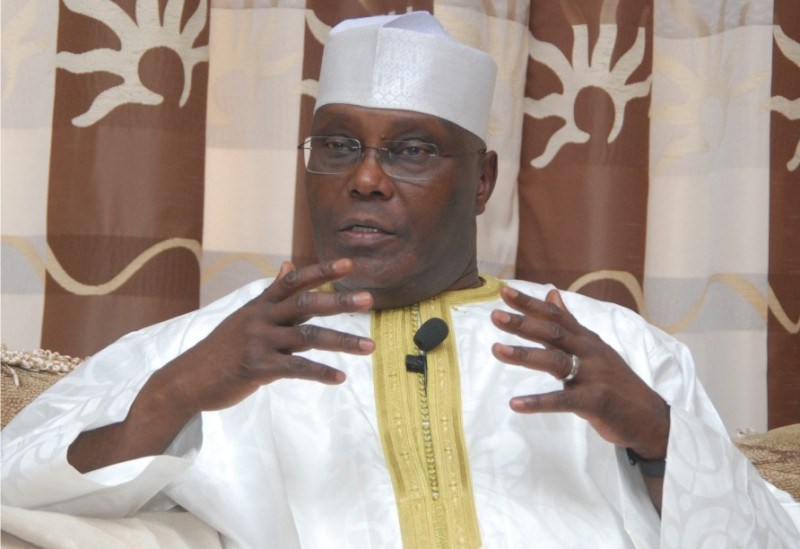As the race hots up for the election of a presidential candidate by Peoples Democratic Party, PDP, an ex-Nigerian Vice President made a detour to the political path by outlining his robust plans to resuscitate the nation’s trudging power sector, create jobs and ensure security of lives and property.
Answering a series of questions posed by a twitter user on his verified handle @Atiku, on how he intends to find solutions to salient problems of national unity, unemployment, security and some other topics on Nigeria’s development, Abubakar Atiku said if elected as president, he would generate power by ensuring full participation of private sector.
The former nation’s number two citizen said his administration will issue licenses to enable the private sector invest in mini-grid capabilities to service local communities or local government, states, regions or target industrial clusters.
A frontline PDP presidential aspirant, he posited, “Our electricity generation plan shall be diversified to include clean energy (hydro, solar and nuclear) in addition to natural gas. As you may be aware, the transmission infrastructure of the power sector is ageing and in dire need of investment.
“We shall provide incentives, including tax breaks to the private sector to invest in the development of multiple green field mini-grid transmission systems.
“In the meantime, we shall consider concessioning to private sector segments of the national grid under some form of PPP over a period of time.”
On security, Atiku stressed the need to understand the root causes of the challenges in the North, saying that “The full economic potentials of the region remain undeveloped resulting in high rates of youth unemployment, high levels of poverty and deprivation and income inequality.”
He noted, “Access to education is more restricted, resulting in more out of school children in the North than anywhere else in Nigeria. Unless these issues are tackled, youth restiveness, sectarian violence and other acts of insurgency and terrorism shall continue to bedevil the region.
“My first critical policy priority therefore is to support the northern states in rebuilding their economies and opening up economic opportunities for their citizens. This will reduce frustration and alienation and minimise grievances.
“We shall same time undertake a comprehensive review of our security architecture and enhance its preparedness to meet challenges. As part of the review we shall commence the gradual process of instituting state police and community policing in line with principle of restructuring.”
On creation of jobs, Atiku stated, “As long as growth of the economy is driven by the oil sector, job creation is bound to suffer. To tackle the job and poverty challenges bedevilling the economy, we shall focus on four areas.
“First, we shall stimulate the growth of those economic sectors, which are considered the domain of the poor – i.e Agriculture and Micro & Small Enterprises.
“For the MSE sector, we shall set up a Venture Capital Fund to enhance their access to finance and hence their ability to grow and employ more hands.
“Second, we shall set up a National Innovation Fund to support budding entrepreneurs, especially young men and women with brilliant ideas.
“Thirdly, we shall promote a Special Apprenticeship Programme that will support the training of up to 1,000,000 youth (including the NYSC) each year in diverse fields, by local master crafts persons. While they undergo the training, we shall match them with potential employers.
“Fourth area of focus is the aggressive promotion of Nigeria as Africa’s leading business process outsourcing destination with potential to create two million direct and indirect jobs.
“Our goal is to ensure that Nigeria fully explores the vast opportunities that abound in the global market for IT and IT-enabled services to create quality jobs for our youth. Also, to lift our people out of poverty, we shall improve their access to basic services including education, health, electricity and water – by making these services not only available but affordable.”
On currency, he reasoned that the only way the Naira will be more valuable is to apply a diversified structure for our economy.
Continuing, he also argued, “This way, our economy will become more productive. We are committed to revamping the non-oil sector through increased private sector investments.
“We shall diversify our export base by providing export expansion incentives to manufacturers. Increasing our exports means increased foreign exchange earnings and stronger currency.”

